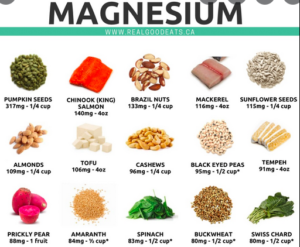 Minerals are as important to us:
Minerals are as important to us:
as they are to plants
Our gut, their microbiome
if not = they cannot have what is supposed to be there – how do we know?
Tasteless.
More on all minerals from Weston – Price here (A great break down of all the essentials)
The fact is that minerals are as important to us as they are to plants and without them taking up their correct positions in our cells it is impossible to remain strong and healthy for long.
MACRO (need a lot) and MICRO (crucial to have only a tiny amount – but to be present)
We wilt just like plants wilt, and if we add dehydration to the list, a commonplace medical condition, then we and our children have great difficulty clearing heavy metal and radioactive contamination from our bodies. Without enough minerals our cells become like Swiss cheese—full of holes that can be filled with heavy metals like mercury that is everywhere, even in our teeth, thanks to dentists, and in some of the vaccines given to our children—an absolute medical abomination.
Without enough minerals our cells become like Swiss cheese—full of holes that can be filled with heavy metals like mercury that is everywhere, even in our teeth, thanks to dentists, and in some of the vaccines given to our children—an absolute medical abomination.
With today’s pollution of chemicals and heavy metals, the increasing radiation coming from Japan and other nuclear threats—toxic medical and dental treatments—combined with the vastly decreased quality of our foods, it is vitally important that we learn how to confront these threats with some new medical principles and practices.
Minerals as part of an anticancer diet
According to the National Foundation for Cancer Research the value of minerals as part of an anticancer diet is frequently overlooked.
Minerals play a vital role in fighting cancer. A prime example is the mineral selenium (Se), an essential micronutrient with important biological and biochemical functions in organisms because of its unique and
powerful antioxidant properties and its ability to regulate thyroid gland metabolism.
It is well known that Se is an antagonist that moderates the toxic effects of many heavy metals such as arsenic, cadmium, mercury, and lead in organisms. This same capacity to mitigate heavy metal toxicity crosses over into radioactive particles giving us a measure of increased protection via increases in selenium-dependent glutathione.
It is important to remember that whatever protects us against cancer protects us from radiation exposure. We can make this general statement because there is a direct mathematical relationship between radiation exposures and cancer rates.
Magnesium & Calcium
Prof. Chris Busby is recommending magnesium and calcium supplementation to everyone concerned about the radiation exposure from Fukushima.
Nuclear particles do have a strong propensity to bind with DNA and that is why we see cancers develop, even after low exposure, and that is also why we see drops in fertility and the onset of sterility.
Busby though is new to the health area and is being confronted for his product line and certainly needs to be for his recommended dosages of 800 mg of calcium and 450 mg of magnesium taken daily.
One should be taking much more magnesium!
Magnesium repletion produced rapid disappearance of the periosteal tumors.
[2]<http://blog.imva.info/?s=zinc#_edn2>
Magnesium is a vital mineral whose lack leaves us open to not only radioactive damages but also those from heavy metals and thousands of chemicals that we are commonly exposed to. Researchers from Japan’s National Cancer Center in Tokyo have found that an increased intake of magnesium reduces a man’s risk of colon cancer by over 50%. Aleksandrowicz et al in Poland conclude that inadequacy of magnesium and antioxidants are important risk factors in predisposing to leukemias.[3]<http://blog.imva.info/?s=zinc#_edn3>
Other researchers found that 46% of the patients admitted to an ICU in a tertiary cancer center presented with hypomagnesemia. They concluded that *the incidence of hypomagnesemia in critically ill cancer patients is high*.[4]<http://blog.imva.info/?s=zinc#_edn4>
Magnesium deficiency is carcinogenic
Magnesium deficiency is carcinogenic, and in the case of solid tumors, a high level of supplemented magnesium inhibits carcinogenesis.*[5]<http://blog.imva.info/?s=zinc#_edn5>
Magnesium ions stabilize structures of proteins, nucleic acids, and cell membranes by binding to the macromolecule’s surface and promote specific structural or catalytic activities of proteins, enzymes, or ribozymes.
Magnesium plays a critical role in vital DNA repair proteins.
*Magnesium ions’ synergetic effects on the active site geometry may affect the polymerase closing/opening trends.*
Distinct structural features of DNA, such as the curvature of dA tracts, are important in the recognition, packaging, and regulation of DNA.
Physiologically relevant concentrations of magnesium <http://www.magnesiumforlife.com> have been found to enhance the curvature of dA tract DNAs.
Magnesium, an essential metal that is important in *the normal functioning of DNA* alters the tumorigenic [tumor-causing] process when it interacts with heavy metals, which are damaging DNA molecules.[6]<http://blog.imva.info/?s=zinc#_edn6>
The anti-colon-cancer effects of calcium are linked to magnesium levels, reports a 2008 study. Researchers from Vanderbilt University found that low ratios of the minerals were associated with reduced risk of colorectal cancer, according to findings presented at the Seventh Annual American
Association for Cancer Research International Conference on Frontiers in Cancer Prevention Research.[7] <http://blog.imva.info/?s=zinc#_edn7>
Several studies have shown an increased cancer rate in regions with low magnesium levels <http://www.magnesiumforlife.com> in soil and drinking water, and the same for selenium. In Egypt the cancer rate was only about 10% of that in Europe and America.
In the rural fellah it was practically non-existent. The main difference was an extremely high magnesium intake of 2.5 to 3g in these cancer-free populations, *ten times more* than in most western countries.[8] <http://blog.imva.info/?s=zinc#_edn8>
